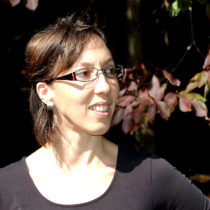Forum Replies Created
-
AuthorPosts
-
August 26, 2011 at 12:58 am #160858
 Claudia DinepParticipant
Claudia DinepParticipantA favorite book on many topics, sure to include wayfinding, is “A Pattern Language”
April 23, 2010 at 5:38 pm #169981 Claudia DinepParticipant
Claudia DinepParticipantHi Claudia, (lovely name!)
Thx for your thoughts. I do that too – weigh the pros/cons of life here/there….
Yesterday, in the class I teach, we talked about the ‘cradle to cradle’ concept and then diagrammed waste processes – all of which were linear and dead ending – not cyclical. Now that you mention the manifest destiny concept it makes sense that in the US, partly because of this attitude, partly because of the newness of the culture and partly because of all the space we have, development has not been cyclical (re-use) but linear (leap frogging across the land).
In Europe, or at least what I’ve seen in Switzerland up until maybe 20 years ago, rather than sprawl, land-uses had been rebuilt and repurposed over and over again – perhaps because they would just not fathom turning farmland into malls…or jeopardizing the delicious milk chocolate!
April 23, 2010 at 2:20 am #169984 Claudia DinepParticipant
Claudia DinepParticipantHi Robert, Thank you for the comment. I agree. My feeling is that the next phase of sustainability in the U.S. will move beyond sustainable sites into the realm of ‘behavior-based sustainability’. In other words, the sustainable design of places and objects is critical, but obviously without a fundamental change of values and behavior, even the most efficient designs are merely a drop in the progress bucket. Landscape sustainability must be a person-by-person effort. (But it would help if public policy led the way!). Perhaps Europe is leading the way with this personal effort and likely the sustainable sites effort too, in many parts (but not all) of Europe. What is your feeling? Thanks for the heads up on Topos 70. I’m preparing a talk on sustainability at the CELA conference (with Kristin Schwab) in The Netherlands in May and will take a look at the journal before then. Will you be attending?
April 23, 2010 at 1:50 am #169985 Claudia DinepParticipant
Claudia DinepParticipantHi Roland, I wanted to get back to you regarding the worm issue which is not typically interesting to most people – yet fascinating to us landscape architects for some reason. I agree that many people struggle to get beyond the basic ‘less than pretty’ realities of natural processes. It certainly is a sticking point in education – especially when it comes to educating clients who believe they want sustainable landscapes but don’t really know what that entails or what that looks like or how it functions. I’m still curious as to whether, regardless of political party (and I agree with you that no matter what party, most people think worms are icky), Europeans, in general, are more accepting, more aware of and more in tune with natural processes, such as composting, than Americans, simply because they are more exposed to it or are they better educated about its purpose?
April 21, 2010 at 6:30 pm #169994 Claudia DinepParticipant
Claudia DinepParticipantThanks, Trace One, for the heads up on the trash incinerator article – just read it. It’s interesting that the U.S. state and municipal governments are shying away from it because of public perception and difficulty finding locations for it. It’s interesting to note that new environmental laws in Europe forced the switch to new, cleaner energy-producing trash management technology. It was not left up to the private sector to decide – it was a European Union determination based on spatial constraints to accommodating landfills and their Kyoto Protocol goals.
Interesting comment regarding transportation development patterns. When trains replaced horses maybe it was seen as ‘improvement’ but today, trains replacing cars are seen as limiting freedom…
In terms of willingness and perhaps, habit, (or is it common sense?) it seems like European sustainability (in its broadest sense) is ahead of the U.S. in many ways. (I’m thinking of the Kyoto Protocol (willingness) and using public transportation (habit) and composting (common sense)).
It would be interesting to hear from some Europeans on this!
April 21, 2010 at 12:22 pm #169997 Claudia DinepParticipant
Claudia DinepParticipantThat’s true Rob, the ‘political temperament’ of a country drives what citizens are willing to do for the environment. This last year I’ve been living overseas and have to confess I haven’t followed much on the Tea Party movement, but I suspect the Party would not favor public policy that curbs individual ‘rights’ to balance environmental use/protection. Is that your estimation?
April 21, 2010 at 2:41 am #169999 Claudia DinepParticipant
Claudia DinepParticipantThx Roland for your comment and the link which I haven’t seen before. I agree, there are some generalities to be made for sure.
It’s claimed that the U.S. did a better job with (and were the originators of) preserving land in perpetuity as was done by Roosevelt with the first National Parks etc. Whether they were the first I’m not sure, but certainly untouched wilderness is valued in the U.S.. It’s part of our ‘national treasure’ so to speak.
In some parts of Europe (where the ‘national treasures’ are integrated with hundreds of years of habitation) there are, as you mention, tightly controlled policies regarding ‘behavior’, such as waste disposal, development restrictions, and so on.
I’m interested in hearing more about policies like the compost pile requirement in Austria. Similarly, my Swiss grandmother paid more than 1 CHF per bag of household trash – a policy implemented to reduce waste (and to encourage composting!) I think these policies raise the awareness of sustainable living within the general population. Could that work in the U.S.?
January 22, 2010 at 2:21 am #171459 Claudia DinepParticipant
Claudia DinepParticipantHilarious! Food AND landform – what could be better?!
-
AuthorPosts


